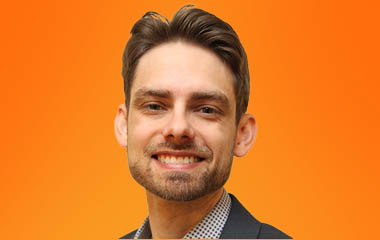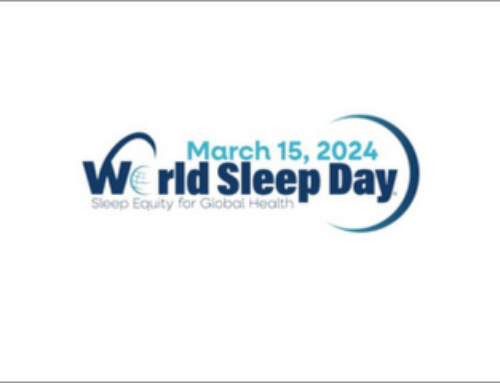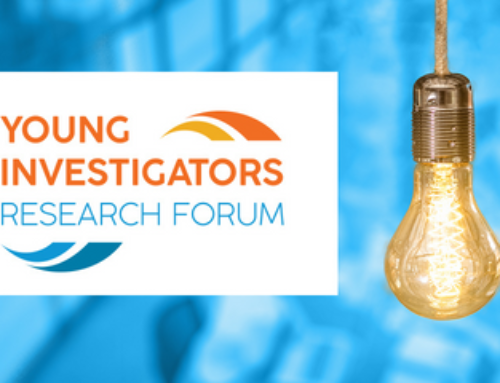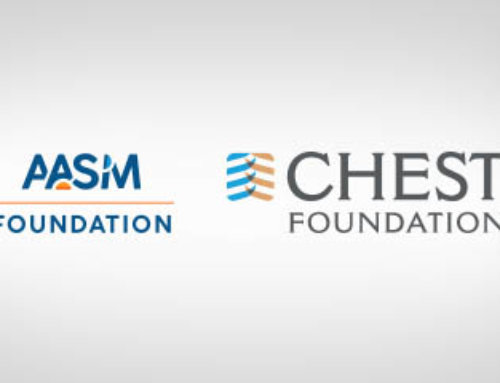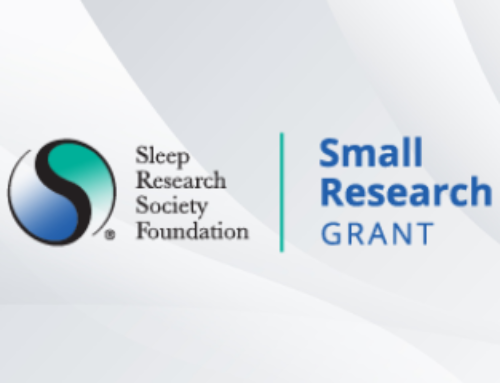Dr. Eric Landsness is a physician scientist and a two-time AASM Foundation research award recipient who is on a quest to identify novel sleep-focused therapies that could enhance sleep and recovery after stroke.
Eric Landsness, MD, PhD, is an assistant professor in the Department of Neurology at Washington University – St. Louis and a recipient of the 2018 Physician Scientist Training Award and Bridge to Success Award for Early Career Investigators. Landsness’ first experience with sleep was as a graduate student at the University of Wisconsin-Madison while obtaining his doctorate in neuroscience. His passion for sleep research was further increased during his medical training, which ultimately inspired him to pursue a career as a physician scientist.
“I fell in love with sleep first as a graduate student studying brain plasticity, because I saw sleep as a way to understand how the brain works,” said Landsness. “During my medical training, I then saw sleep as not just for the brain, but holistically for the body whether it was in relation to heart health or the exciting interaction of sleep and metabolism. There is so much more to learn about the role of sleep in health, and I think sleep-centric physician scientists have a unique opportunity to answer these questions and make a difference in people’s lives.”
Landsness’ overarching research aims are to improve the understanding about the connection between sleep and stroke, which led to his 2018 Physician Scientist Training Award and Bridge to Success Award for Early Career Investigators from the AASM Foundation, Focal Slow Wave Sleep in Brain Repair and Recovery after Stroke. The goal of his project is to better understand the role of slow wave sleep (SWS) in stroke recovery.
“We know that sleep is essential for the brain’s ability to recover from stroke, but what part of sleep, such as NREM, REM, slow waves, spindles, etc., that is important remains unknown,” said Landsness.
Using an animal model of stroke, Landsness has some preliminary evidence that not only does whole-brain SWS change after sleep, but that areas of the brain near the stroke that undergo recovery also have local areas of increased SWS prior to recovery. These results are exciting because SWS may lay the groundwork for stroke recovery.
“Millions of Americans live with long-term neurological disability due to the lack of blood flow to the brain caused by stroke. Unfortunately, there aren’t any good post-stroke treatments to help the brain recover faster or more completely,” said Landsness. “If my preliminary results showing SWS are important for recovery are confirmed, we should focus our efforts on developing SWS-focused treatments for stroke survivors leading to faster and more complete recovery.”
Thanks to the AASM Foundation’s support, Landsness is now pursuing the goal of designing sleep-focused treatments for patients suffering from neurological disorders and starting his own research lab at Washington University in St. Louis.
“I am excited about expanding our knowledge about how sleep affects stroke recovery. In the future, I would love to start a comprehensive sleep and stroke clinical center where a multi-disciplinary team of sleep practitioners, stroke physicians, and physical and occupational therapists are holistically treating stroke patients with a focus on their sleep complaints,” said Landsness.
Reflecting on his career trajectory, Landsness had the following advice for aspiring sleep physician scientists who are starting to participate in mentored sleep research while balancing clinical demands.
“Choose a research area that you are passionate about. Don’t work on a research project that your mentor wants you to pursue and you have no interest in, but just doing it for the sake of doing research,” said Landsness. He further emphasized, “Doing research in addition to your clinical responsibilities requires extra effort and demands on your time. If you strongly believe in your science it will be easier to set aside the time to run the experiments, find a mentor and write those papers. If the research feels simply like another requirement to check off, then do some self-reflection and find a topic that you would love to explore.”


